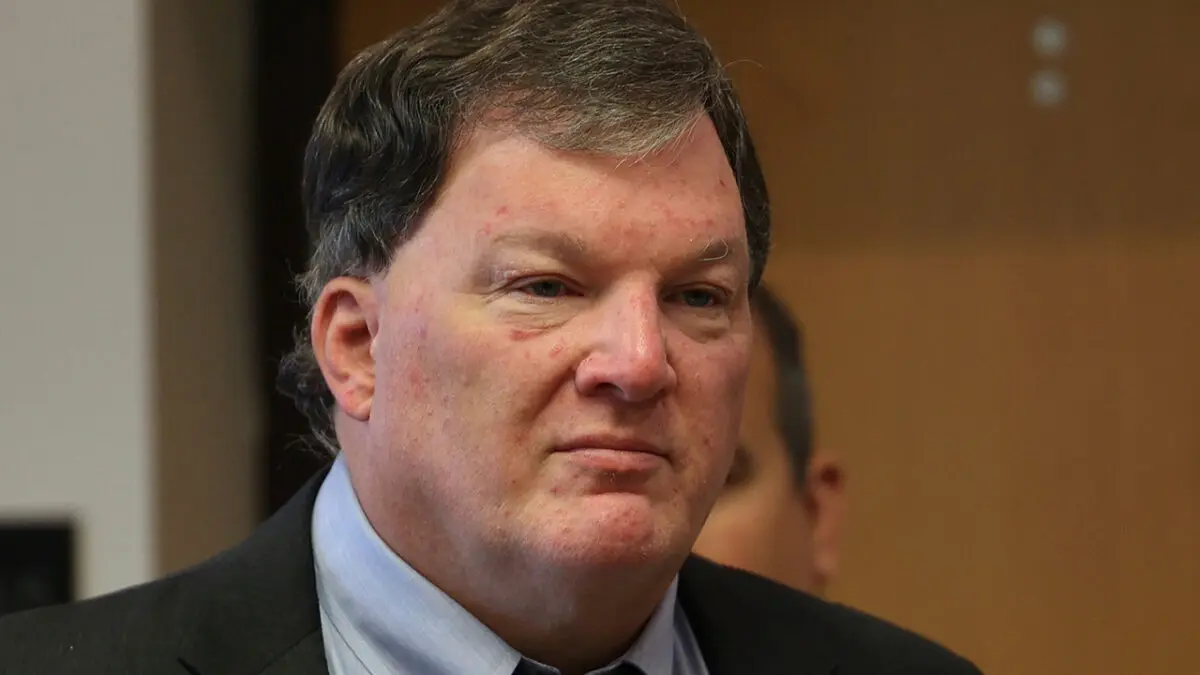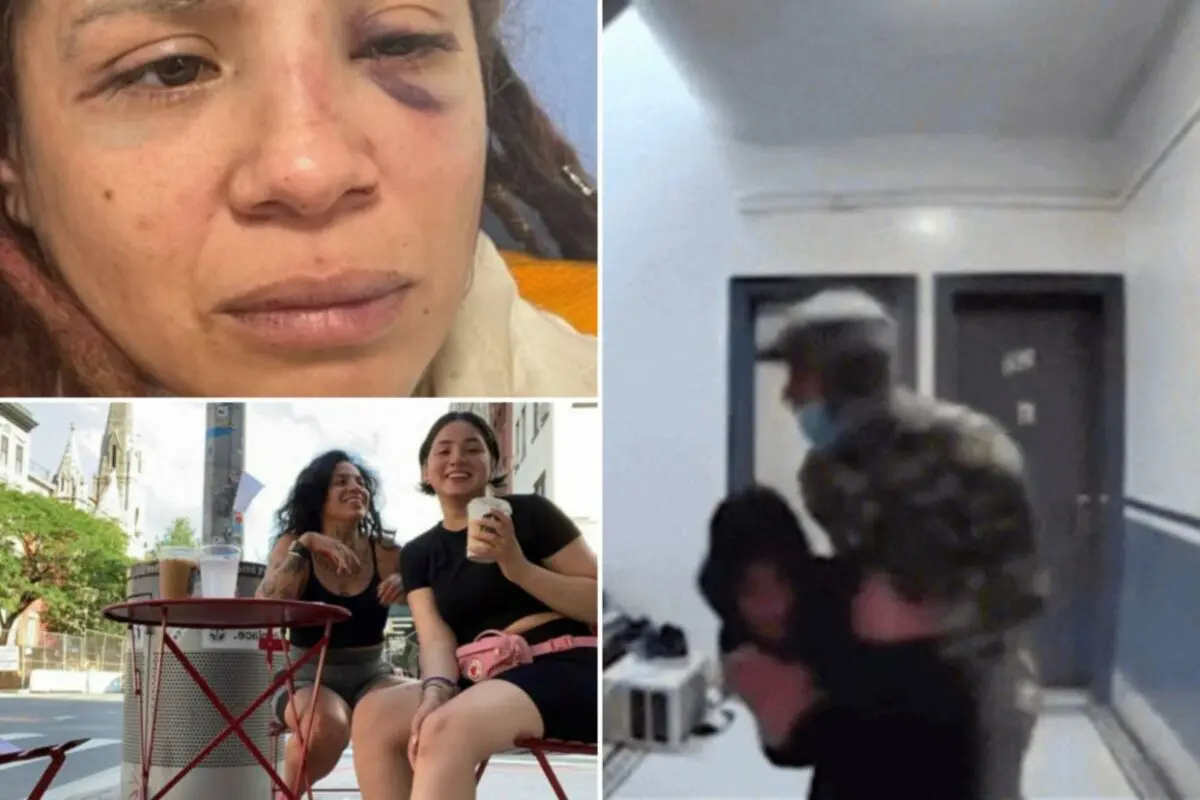The shocking arrest of Joey Grant Luther, an aesthetician based in New York City, has sent ripples through the beauty and wellness industry. Clients who once trusted him with their appearance are now in total shock as they learn that the low prices they were drawn to may have come at a devastating cost. Luther has been accused of injecting counterfeit Botox sourced from China, which has left several clients with life-threatening health issues. These allegations raise a critical question in today’s market: ‘Who can you trust anymore?’ The fallout from this incident echoes the sentiments of many seeking beauty treatments at affordable rates. The allure of cheap prices can often obscure the potential dangers lurking behind them.
The Rise and Fall of Joey Grant Luther
Joey Grant Luther, age 54, built a reputation in Hell’s Kitchen with his medical spa, JGL Aesthetics, catering primarily to a male clientele. His prices were appealingly low, offering procedures like Botox for a fraction of the cost typically charged by licensed professionals. While the allure of affordability can entice many, Luther’s practices raise concerns about the safety and legality of such treatments. Former clients have come forward, sharing harrowing experiences after receiving treatments from him. Symptoms ranging from double vision to severe complications leading to hospitalization have emerged, causing widespread alarm.

Unveiling the Truth Behind the Treatments
The highly publicized arrest of Luther is a stark reminder of the risks associated with unregulated aesthetic procedures. Many clients had no idea that they were being treated by someone who lacked the proper licensing. Luther’s story serves as a cautionary tale; the dazzling persona he presented masked the alarming reality of his practices. According to the court documents, federal prosecutors allege that he knowingly used counterfeit drugs on his clients, a practice that not only undermines public trust but also places individuals’ lives at stake.
Why Pricing Matters
The primary driver of clients seeking Luther’s services was the competitive pricing he offered. For around $300 for treatments typically costing much more, many were lured into a false sense of security. They believed they were getting quality service at a bargain, not realizing they were potentially endangering their health. Experts have highlighted that while affordability is attractive, it often comes with hidden costs that can be disastrous.
The Impact on the LGBTQ+ Community
Many of Luther’s clients were part of the LGBTQ+ community, which makes the implications of his actions particularly poignant. The scandal has sent shockwaves through this tight-knit group, creating an atmosphere of distrust towards aesthetic services. Clients who once felt comfortable and accepted in beauty spaces are now questioning the integrity of professionals. This incident highlights the need for greater transparency and regulation within the aesthetics industry.

The Legal Repercussions
As the case against Joey Grant Luther unfolds, the legal implications are significant. He faces multiple charges including wire fraud and smuggling, with potential prison time looming over him. Those who suffered adverse effects from his treatments may also consider pursuing legal action, amplifying the frequency of lawsuits against practitioners who misrepresent their qualifications. The legal landscape surrounding cosmetic procedures is evolving, highlighting the importance of being aware of regulations and the qualifications of those administering treatments.
Understanding the Dangers of Counterfeit Products

The use of counterfeit products in the beauty industry is a rising threat that demands attention. Counterfeit Botox is just one example of how dangerous and unscrupulous practices can lead to serious health concerns. Regulatory bodies continuously stress the importance of using legitimate and approved products administered by licensed professionals. Understanding the dangers associated with counterfeit products is crucial for consumers, who must prioritize their health over saving money.
Signs of Counterfeit Products
For those navigating the beauty landscape, it’s essential to know how to identify potential counterfeit products. Signs can include inconsistent packaging, lack of documentation, and unavailability of tracking information. If a deal sounds too good to be true, it probably is. Clients should exercise caution and always research their practitioners before committing to any procedures.
The Role of Regulation and Oversight
Regulation plays a critical role in safeguarding consumers from fraudulent practices in the beauty industry. Government bodies and professional organizations are tasked with ensuring that aesthetic practitioners meet specific qualifications. Increased regulation can also help to restore public confidence in the aesthetics field. Advocating for stricter regulations could be a step towards a safer environment for all individuals seeking cosmetic services.
The Aftermath for Clients

The repercussions of Luther’s alleged actions extend far beyond the courtroom. Clients who received counterfeit Botox face the daunting aftermath of their experiences. Many are navigating complex medical issues and seeking treatment to rectify the damage done. The psychological impact of such betrayals adds another layer, as trust in aesthetic services was shattered.
Physical and Emotional Consequences
Clients have reported a range of physical symptoms that arose after treatments with Luther. These symptoms not only required extensive medical intervention but also eroded their trust in not just Luther but in the entire aesthetics industry. The emotional scars from such experiences can linger long after the physical symptoms have subsided. Many are compelled to seek therapy or counseling to cope with the anxiety stemming from their experiences.
Moving Forward with Caution
As clients attempt to heal from this unnecessarily traumatic experience, the importance of sharing their narratives becomes crucial. Their stories may help prevent others from falling victim to similar scams. Knowledge-sharing can establish a community that emphasizes safety and informed decisions when it comes to aesthetic treatments. Empowering clients to speak out can build a culture of vigilance in the beauty industry.
The Future of Aesthetic Services

In light of recent events, the aesthetic industry may need to reevaluate its practices. A shift towards more stringent regulations and greater transparency will be essential to restore consumer trust. Professionals must prioritize ethics and adhere to regulations to ensure safety in their treatments. Clients deserve reassurance that their well-being is the top priority.
The Role of Education and Awareness
Educating clients on the potential risks of aesthetic treatments is paramount. Beauty professionals can play a vital role in raising awareness about the importance of regulation and proper certification. Information sessions, workshops, and community engagement can help create an informed clientele that is more equipped to make safe and conscious choices.
Building a Trustworthy Landscape
Reestablishing trust in the aesthetics industry will require concerted efforts from both practitioners and consumers. By insisting on transparency and advocating for higher standards, the industry can work towards creating a safer environment for all. Empowering clients to demand quality and safety will ensure that incidents like the Joey Grant Luther scandal become a thing of the past.
Everyone deserves safe and effective aesthetic treatments. It’s crucial to remember that while affordability is attractive, nothing is more valuable than one’s health. As the landscape of beauty treatments evolves, prioritizing safety over savings will be beneficial for everyone.
I’m Mikael, a 35-year-old Gossip Gravity Creator. I’m passionate about curating captivating content that sparks conversations and ignites curiosity. Join me on this exciting journey as we explore the fascinating world of gossip and trends together!



